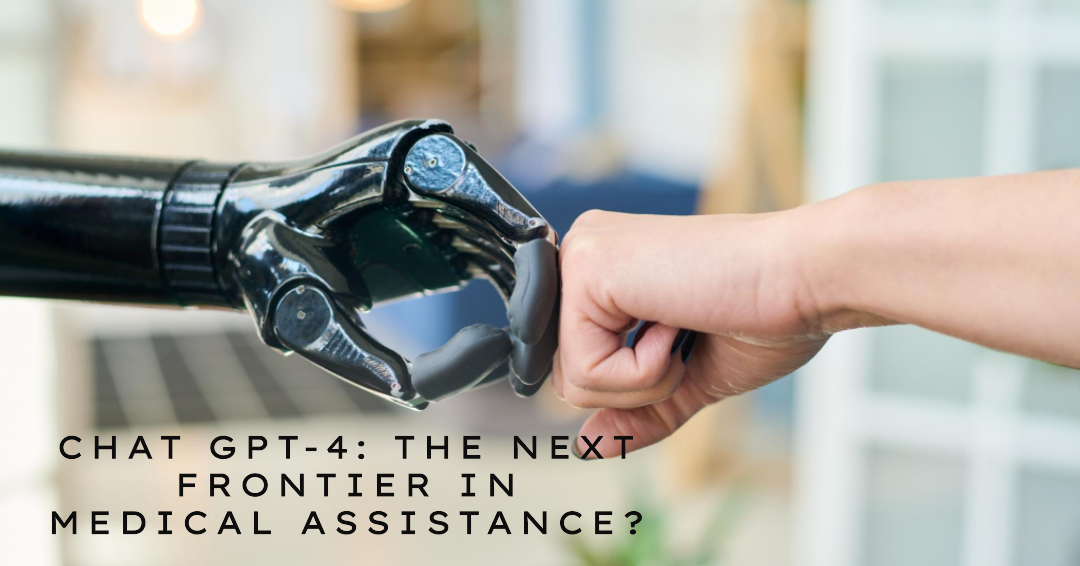Medically Reviewed by Dr. Hanif Chatur
Key Takeaways
- Chat GPT-4’s Potential: Beyond its conversational prowess, GPT-4 can revolutionize healthcare with applications such as virtual health assistants, symptom checkers, and aiding medical research and training.
- Advantages & Challenges: While GPT-4 offers round-the-clock assistance, consistency, and scalability, it also poses challenges like limitations in understanding, data privacy concerns, and potential over-dependency.
- Balanced Integration: The future of GPT-4 in healthcare lies in a balanced approach, where the AI complements human expertise, ensuring safe and effective patient care.
Learn more with MarkiTech
The digital transformation sweeping across industries, and healthcare hasn’t been immune. From telemedicine platforms to AI-driven diagnostic tools, the marriage of technology and healthcare has been nothing short of revolutionary. Among these technological marvels, the Chat GPT-4, a state-of-the-art conversational AI, is emerging as a potential game-changer. But where healthcare is concerned, will it really prove to be the next frontier in medical assistance? Let’s try and understand what Chat GPT-4 is, what it offers to the medical world, and where we can go with it.
Understanding Chat GPT-4
To appreciate the potential of GPT-4 in healthcare, we need to first educate ourselves to its capabilities. GPT-4, an advanced iteration of the Generative Pre-trained Transformer series by OpenAI, is renowned for its human-like text generation. A number of commentators have stated there is every likelihood it will pass the Turing Test, in that a user would not be able to tell whether they are chatting with a human or a machine. No, nothing like Ex Machina just yet, but its ability to understand context, provide relevant responses, and even engage in complex discussions does make it an excellent candidate for various applications.
Potential Applications in Healthcare
Virtual Health Assistants: Imagine a 24/7 virtual assistant that can answer patient queries, provide general health information, or even guide patients through basic self-care procedures. GPT-4 can potentially serve as the backbone for such platforms.
Symptom Checkers: While it cannot be a replacement for a trained physician, GPT-4 can still assist in preliminary symptom checks, helping patients decide if they need immediate medical attention.
Medical Research Assistance: Medical professionals can use GPT-4 to scan vast amounts of data, summarize research findings, or even suggest relevant literature based on the topic of interest.
Medical Training: Medical students could engage with GPT-4-based platforms for simulated patient interactions, enhancing their diagnostic and communicative skills.
The Advantages
Availability: AI doesn’t sleep. With GPT-4 based tools, patients could have round-the-clock assistance.
Consistency: Unlike human interactions that might vary based on numerous factors, GPT-4 offers consistency in its responses.
Scalability: Catering to a vast user base simultaneously isn’t a challenge for AI, ensuring that more patients receive assistance when they need it.
Challenges and Considerations
Limitations in Understanding: Despite its sophistication, GPT-4 hasn’t progressed to the level of being able to exhibit human intuition. Misinterpretations, especially in a field as critical as healthcare, could have severe consequences, and human oversight will still be necessary.
Data Privacy: Using AI in healthcare brings forth concerns regarding patient data privacy and ensuring that interactions adhere to regulations like HIPAA.
Dependency: Over-reliance on AI-driven platforms could lead to negligence in seeking timely human medical intervention when necessary.
The Road Ahead
The integration of GPT-4 in medical assistance is still in its nascent stages. While it offers tremendous potential, successful implementation will require careful consideration, rigorous testing, and continuous feedback. Collaborative efforts between AI developers and healthcare professionals will be vital in the weeks and months to come, to ensure a viable error proof human interaction platform that is able to support diagnosis and treatment.
In Conclusion
Chat GPT-4, with its impressive conversational capabilities, offers a tantalizing glimpse into the future of medical assistance. However, as with all technological integrations in healthcare, a balanced approach – where technology complements human expertise instead of supplanting it – will be the key to truly harnessing its potential.
Book a consultation with us!
MarkiTech on the Digital Healthcare Front
MarkiTech has various subsidiaries with products and services targeted towards digital healthcare and telehealth/telemedicine and virtual clinic with laser focus on helping seniors age in place and help their caregivers.
Sensights.ai is a company focused on remote patient monitoring and aging solutions, which utilizes artificial intelligence to track the health of patients and keep a round-the-clock connection between caregivers and patients.
As well, Veyetals uses rPPG and AI modeling algorithms to capture the light reflected by the blood vessels under a patient’s skin to measure vitals anytime, anywhere.
Lastly, we are now launched our latest Mental Health AI Scribe tool called CliniScripts.com


